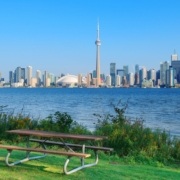Abbotsford Rules for Airbnb Rentals – Guide for Hosts
Introduction
Abbotsford is a beautiful city located in British Columbia, Canada. With its breathtaking views, bustling local scene, and hospitable people, Abbotsford has become a popular destination for travelers from all over the world. Airbnb has made it easier for people to experience the city by providing affordable accommodation options. However, the City of Abbotsford has implemented some rules that hosts must follow to ensure safety, comfort, and fair competition in the housing market. Explore The Best Areas in British Columbia for Airbnb.
Vacation Rental Market Overview: Abbotsford
The Airbnb market in Abbotsford offers an enticing prospect for investors, highlighted by a robust average daily rate (ADR) of $184.8. Peak pricing occurs in July, hitting a high of $208, with May and August also demonstrating solid rates, approximately at $200. The general occupancy rate is at 55%, with a high of 77% seen in July. With a total of 353 properties listed, the marketplace is both competitive and open to newcomers.
The average annual revenue for an Airbnb listing in Abbotsford is an impressive $37.3K, with July being the most lucrative month, yielding up to $3,600 in revenue. The Revenue per Available Room (RevPAR) is $104.4, with weekends seeing a significant jump to $207, indicating the high demand for short-term stays during these periods. The market’s performance is further underscored by a market score of 83, reflecting its robustness and potential for profitability.
The backdrop to this thriving market is Abbotsford’s housing prices, which average $1,119,000. Despite the high entry cost, the potential for substantial returns on investment makes it an attractive market for Airbnb investors.
Reasons for Investment Attractiveness in Abbotsford’s Airbnb Market
Strong Seasonal Performance: The peak rates during the summer months, especially July, show that Abbotsford enjoys a strong seasonal demand, driven by tourism and local events.
High Weekend Demand: The significant increase in weekend RevPAR indicates a strong weekend market, appealing to short-term vacationers and those seeking weekend getaways.
Solid Market Score: An 83 market score suggests a healthy balance between supply and demand, indicating a lower risk for new investments.
Growing Tourism: The allure of Abbotsford, from its scenic landscapes and outdoor pursuits to its vibrant cultural festivities, plays a significant role in the expansion of its tourism industry, thereby boosting the need for temporary lodging options.
Investment Returns: Given the average yearly earnings of $37.3K and the potential for elevated occupancy levels, investors stand to gain substantial returns on their investments, despite the elevated costs of properties.
Diverse Market: The variety of available listings suggests a market that can cater to different preferences and budgets, broadening the potential guest pool.
Navigating Legal Requirements: Abbotsford’s Airbnb Hosting Rules
While Abbotsford offers attractive investment opportunities for Airbnb hosts, understanding and adhering to local regulations is crucial for sustainable and legal operation. Whether you’re considering becoming a host or looking to optimize your current listing, here’s what you need to know.
Airbnb Registration and Licensing
All short-term rental operators in Abbotsford must obtain a business license and register with the City of Abbotsford. Hosts must display their business license number on all advertising platforms, including Airbnb. Read more about Business Licences in the City of Abbotsford.
Zoning and Land Use
Hosts must ensure that their properties are zoned for short-term rentals. Some properties are not permitted to operate as short-term rentals, and hosts may face fines if they violate the zoning bylaws. Hosts must also comply with all the rules and regulations of the strata corporation or homeowner’s association. Read more on Zoning Bylaw Updates | City of Abbotsford.
Safety and Security

The safety and security of guests are of utmost importance. Hosts must ensure that their properties are safe and secure for guests. The properties must have working smoke detectors, carbon monoxide detectors, fire extinguishers, and emergency lighting. Hosts must also provide guests with emergency contact information and clear instructions on how to use the equipment.
Airbnb Insurance
Hosts must have liability insurance coverage of at least $2,000,000. The insurance must cover any damages or injuries that occur on the property during the guest’s stay. Hosts must provide a copy of their insurance policy to the City of Abbotsford upon registration.
Noise
Hosts must ensure their guests do not cause excessive noise that may disturb the neighbors. Hosts must provide clear instructions on noise levels and quiet hours. The City of Abbotsford has set specific noise limits, and hosts may face fines if their guests violate the noise bylaws.
Parking
Hosts must provide adequate parking for their guests. If parking is not available on the property, hosts must provide information on where guests can park. Hosts must also ensure that their guests do not park on the street during prohibited hours or in areas designated for residents.
Waste Management
Hosts must provide clear instructions to their guests on how to dispose of waste properly. The City of Abbotsford has strict rules on waste management, and hosts may face fines if their guests violate the bylaws. Hosts must also ensure their guests do not litter or leave garbage outside the property.

Accessibility
Hosts must ensure that their properties are accessible to guests with disabilities. The properties must have accessible parking, entrances, and washrooms. Hosts must also provide clear instructions on any barriers that may prevent guests with disabilities from accessing the property.
Business Records
Hosts must keep accurate records of all transactions related to their short-term rental business. The records must include all financial transactions, guest information, and the dates and duration of the rental. Hosts must also provide these records to the City of Abbotsford upon request.
Inspections
The City of Abbotsford may conduct inspections of short-term rental properties to ensure that hosts comply with all the rules and regulations. Hosts must allow inspectors access to the property and provide any necessary information. During an inspection, the City of Abbotsford may check for safety equipment, noise levels, waste management, parking, and accessibility. If the inspectors find any violations, hosts may face fines or legal action.
To avoid any issues during inspections, hosts should regularly review Abbotsford’s Rules for Airbnb Rentals – Guide for Hosts and make sure their properties comply with all the regulations. Hosts should also keep accurate records of all transactions related to their short-term rental business and be prepared to provide these records to the City of Abbotsford upon request.
Airbnb Tax Regulations
When operating a short-term rental business on Airbnb in Abbotsford, hosts must understand and comply with the tax regulations. The two main taxes that hosts must collect and remit are the Municipal and Regional District Tax (MRDT) and the Goods and Services Tax (GST).
The MRDT is a 3% tax that is charged on the cost of the rental to guests. The tax revenue is used to support local tourism and economic development initiatives. Hosts are required to register with Destination British Columbia and collect the MRDT on their rental income. The MRDT must be remitted to Destination British Columbia on a monthly basis.
In addition to the MRDT, hosts must also collect the GST on their short-term rental income. The GST is a federal tax of 5% on the cost of the rental to guests. Hosts are required to register for a GST/HST account with the Canada Revenue Agency (CRA) and collect the GST on their rental income. The GST must be remitted to the CRA on a quarterly or annual basis.
Hosts who fail to register for the appropriate tax accounts or who do not collect and remit the taxes may face penalties and interest charges. It’s important for hosts to keep accurate records of their rental income and tax payments to comply with the regulations and avoid any issues.
Read about Regulations Governing Short-Term Rentals in Maple Ridge, BC
Understanding BC’s Airbnb Legislation
In January 2024, B.C. updated its Vacation Rental Accommodations Act, introducing measures to regulate the industry more effectively across the province. Let’s outline the key aspects of BC’s legislation that complement and enhance the local rules in Abbotsford, ensuring hosts understand their responsibilities on both levels.
Highlights of BC’s Short-term Rental Legislation
Strengthening Local Enforcement: B.C.’s legislation arms local governments, including Abbotsford, with enhanced tools to enforce short-term rental bylaws. Notably, it increases the maximum fines for bylaw offences, empowering local authorities to deal more effectively with non-compliant rentals.
Principal Residence Requirement: A significant update coming into effect on May 1, 2024, introduces the principal residence rule, limiting short-term rentals to the owner’s main living space plus a single additional unit, like a secondary suite or accessory dwelling. This regulation seeks to alleviate the housing shortage by converting short-term accommodations back into available long-term housing options.
Provincial Oversight and Registry: By the end of 2024 or the start of 2025, the introduction of a provincial registry for short-term rentals represents a critical move towards enhancing province-wide adherence to regulations. This requirement mandates that hosts must enroll and exhibit an official provincial registration number in their advertisements, a strategy aimed at improving oversight and ensuring regulatory compliance.
Data Sharing for Enforcement: In an effort to bolster bylaw enforcement, the legislation mandates short-term rental platforms to share listing information with the Province, which, in turn, can assist local governments in enforcement actions.
Implications for Abbotsford Hosts
For hosts in Abbotsford, understanding and complying with these provincial regulations is just as critical as adhering to local bylaws. The principal residence requirement, in particular, will have a direct impact on those offering short-term rentals, necessitating a review of rental practices to ensure they align with both provincial and local regulations. Additionally, the forthcoming provincial registry and data-sharing requirements will introduce new compliance steps for hosts, emphasizing the need for transparency and adherence to both sets of rules.
Conclusion
In summary, hosting a short-term rental in Abbotsford requires navigating a complex landscape of both local and provincial regulations. Comprehending and following the guidelines from both Abbotsford and British Columbia enables hosts to maintain a lawful, thriving, and enduring operation of short-term rentals. Such adherence promotes the well-being and standards of short-term lodging, while also tackling wider issues like the scarcity of housing and its effects on the community.
Familiarize yourself with the Beginning of an Airbnb Business in Coquitlam, BC: A Step-by-Step Approach.












